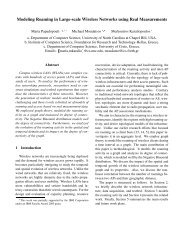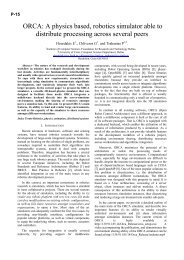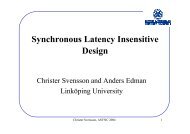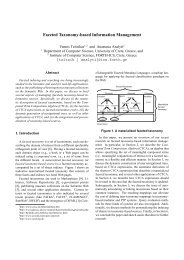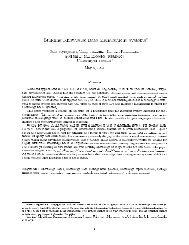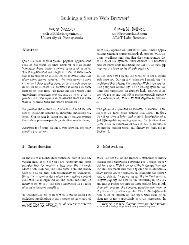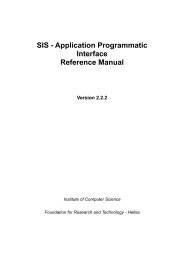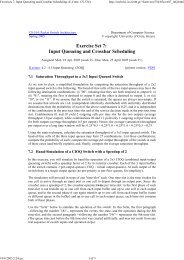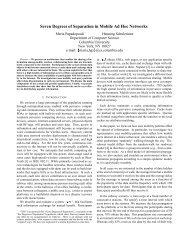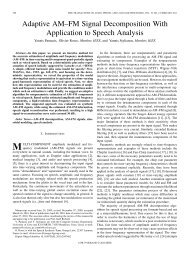Master Thesis - ICS
Master Thesis - ICS
Master Thesis - ICS
Create successful ePaper yourself
Turn your PDF publications into a flip-book with our unique Google optimized e-Paper software.
Computer Science Department<br />
Antonis Misargopoulos<br />
Chapter 3. The High-Performance Scheduling Problem<br />
The computational Grids provide a platform for a new generation of applications [80].<br />
Grid applications include ‘portable’ applications which can be executed on a number of<br />
computation and communication sites, resource-intensive applications which must<br />
aggregate distributed resources (memory, data, computation) to produce results. Grid<br />
applications include sequential, parallel and distributed programs. All of these<br />
applications can be executed on Grids simultaneously and share the available resources.<br />
Most importantly, each of these applications will seek to leverage the performance<br />
potential of computational Grids to optimize their own execution.<br />
From the application perspective, performance is the objective, while scheduling<br />
is fundamental to performance. Schedulers employ predictive models to evaluate the<br />
performance of the application on the underlying system, and use this information to<br />
determine an assignment of tasks, communication, and data to resources, with the goal of<br />
leveraging the performance potential of the target platform.<br />
As we saw earlier, in Grid environments applications share resources<br />
(computation resources, communication resources, instruments, data) and both<br />
applications and system components must be scheduled to achieve good performance.<br />
However, each scheduling mechanism may have a different performance goal. We can<br />
distinguish three kinds of schedulers:<br />
1. Job schedulers promote the performance of the system, as measured by aggregate job<br />
performance, by optimizing throughput measured by the number of jobs executed by the<br />
system<br />
2. Resource schedulers coordinate multiple requests for access to a given resource by<br />
optimizing fairness criteria to ensure that all requests are satisfied. Alternatively, they<br />
optimize resource utilization to measure the amount of the resource used.<br />
3. Application schedulers, which promote the performance of individual applications on<br />
computational Grids by optimizing performance measures such as minimal execution,<br />
22



